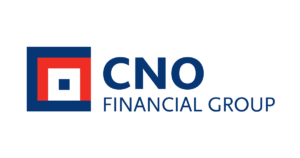
Understanding the Role of a CNO Fiduciary Financial Advisor
A CNO fiduciary financial advisor serves a critical role in managing personal wealth and financial strategies. Unlike traditional financial advisors, who may operate under a suitability standard—where they recommend investment options that merely meet their clients’ needs—a fiduciary advisor is bound by legal and ethical obligations to act solely in the best interest of their clients. This distinction is essential, as it fosters a relationship rooted in trust and transparency.
The term “fiduciary” refers to a legal duty to manage another party’s assets in a way that benefits them. A CNO fiduciary financial advisor not only adheres to this definition but also implements a comprehensive approach to financial planning. Their services often encompass several key areas, including financial planning, investment management, and retirement planning. By doing so, a fiduciary advisor not only helps clients navigate complex investment landscapes but also ensures that every recommendation aligns with their long-term objectives.
Financial planning involves assessing an individual’s current financial status and developing strategies that cater to future goals, such as home ownership, education for children, and retirement security. Investment management, on the other hand, includes portfolio construction and continuous oversight to mitigate risks while pursuing growth opportunities. Retirement planning is equally thorough, addressing issues such as income generation, tax implications, and potential healthcare costs in later years. By focusing on these aspects, a CNO fiduciary financial advisor can provide more customized solutions that traditional advisors may overlook.
Engaging with a fiduciary advisor can be crucial for individuals seeking a robust and trustworthy financial strategy. Their commitment to fiduciary duty exemplifies a higher level of accountability, ensuring that the advice provided not only aligns with clients’ ambitions but also enhances their financial well-being.
Benefits of Working with a CNO Fiduciary Financial Advisor
Partnering with a CNO fiduciary financial advisor offers numerous advantages that can significantly impact one’s financial well-being. A primary benefit of working with these professionals is their personalized approach. Unlike traditional financial advisors who may provide a one-size-fits-all solution, fiduciary advisors take the time to understand an individual’s unique financial situation, goals, and risk tolerance. This tailored strategy ensures that clients receive advice and investment recommendations that are specifically designed to align with their personal financial objectives. Consequently, this customized financial planning can lead to more effective management of assets and better overall outcomes.
Another critical advantage of collaborating with a fiduciary advisor is the commitment to transparency regarding fees and commissions. CNO fiduciary financial advisors are required by law to disclose all potential conflicts of interest and ensure that their fees are reasonable and justified. This level of openness fosters trust between the advisor and the client, as clients can feel confident that their financial interests are prioritized above any potential gains for the advisor. The elimination of hidden costs and the clear understanding of how financial products may affect one’s portfolio promotes a smoother financial planning experience.
Moreover, the peace of mind that comes from engaging a dedicated advocate for one’s financial interests cannot be overstated. Knowing that a CNO fiduciary financial advisor is exclusively focused on acting in your best interest allows clients to feel more secure in their financial decisions. This support can relieve stress and uncertainty, enabling clients to concentrate on other aspects of their lives while their financial well-being is carefully managed. Overall, the benefits of working with a fiduciary advisor are profound, leading to optimized financial strategies and enhanced confidence in one’s financial future.
Finding the Right CNO Fiduciary Financial Advisor for You
Selecting the right CNO fiduciary financial advisor is a pivotal step in ensuring your financial future is on solid ground. The first factor to consider is the advisor’s credentials. Look for qualifications such as Certified Financial Planner (CFP) or Chartered Financial Analyst (CFA), which indicate a high level of expertise and a commitment to ethical standards. Additionally, it is crucial to assess their experience. An advisor with a proven track record likely possesses the knowledge to guide you effectively through differing financial landscapes.

Areas of expertise should also play a significant role in your decision-making process. Not all financial situations are alike; therefore, it is important to ensure the advisor specializes in areas that align with your financial goals, whether it be retirement planning, investment management, or estate planning. Compatibility is another vital aspect. You will want to conduct interviews with potential advisors to determine whether their approach and values align with yours. Prepare thoughtful questions that address their investment philosophy, communication style, and how they will achieve your specific goals.
Research is essential in this process. Start by checking the advisor’s fiduciary status, as being a fiduciary means they are legally required to act in your best interest. This distinction can significantly impact the quality of the advice you receive. Additionally, online reviews and client testimonials can provide insight into the advisor’s effectiveness and reliability. Reach out to former clients if possible to gather firsthand accounts of their experiences. By carefully considering these factors, you can confidently choose a CNO fiduciary financial advisor who will not only meet your financial needs but inspire trust and reassurance as you work toward enhancing your financial future.
Real-Life Success Stories: CNO Fiduciary Financial Advisors in Action
The impact of a CNO fiduciary financial advisor on clients’ financial lives can be profound. One notable case involves a couple, Jane and Tom, who faced significant challenges due to poor financial planning and unexpected medical expenses. Prior to engaging with a fiduciary advisor, they struggled with debt management and lacked a clear path to achieve their long-term financial goals. Their situation took a turn for the better when they decided to consult with a CNO fiduciary financial advisor.
The advisor conducted a comprehensive analysis of their financial situation, factoring in income, expenses, and existing debts. Through this detailed assessment, it became clear that the couple needed to prioritize their cash flow management. The fiduciary recommended creating a realistic budget and offered strategies to reduce discretionary spending. With a structured plan in place, Jane and Tom were able to allocate funds toward paying down high-interest debts. This strategic financial maneuvering led to significant improvements in their monthly cash flow.
Another inspiring story is that of Robert, a small business owner who was struggling to balance personal and business finances. He found himself overwhelmed and frequently stressed about cash flow and retirement savings. After seeking guidance from a CNO fiduciary financial advisor, Robert learned the importance of separating personal and business finances, which allowed him to view his financial health more clearly. The advisor helped him set up a robust accounting system and develop a retirement savings plan, which he had previously neglected. Through dedication and expert advice, Robert transformed his financial strategy, successfully increasing both his business revenue and personal savings.
These testimonials highlight the capabilities of CNO fiduciary financial advisors in transforming financial futures. Equipped with expert insights and tailored strategies, clients can overcome obstacles and reach their financial aspirations, ultimately leading to a more secure situation ahead. These success stories exemplify how a knowledgeable fiduciary can be an invaluable ally in navigating financial challenges.




